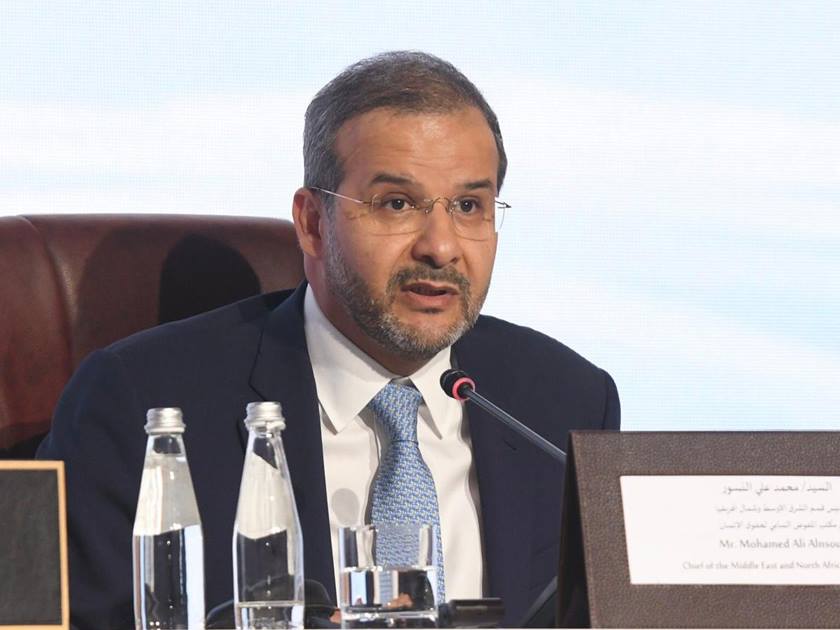Doha, February 21 (QNA) - The Office High Commissioner for Human Rights (OHCHR) affirmed that the negative effects of climate change represent a major challenge to the human rights system, noting that these effects affected about 3.3 billion people around the world.
This came during the speech delivered by Chief of MENA Section at UN High Commissioner for Human Rights Mohammad Ali Alnsour, during the International Conference on Climate Change and Human Rights, organized by the National Human Rights Committee (NHRC), in cooperation with the Office of the UN High Commissioner for Human Rights, UN Development Program (UNDP), League of Arab States, and Global Alliance of National Human Rights Institutions (GANHRI), with the participation of more than 300 experts and stakeholders from different countries around the globe.
Alnsour warned that the negative effects of climate change represent a major challenge to the human rights system, as it constitutes a direct, immediate and long-term threat to the right to life, the right to water and food, the right to health, adequate housing and the right to self-determination.
In this context, he pointed out that the victims of climate change have reached 3.3 billion people, according to the figures mentioned in the report of the Special Rapporteur on human rights in the context of climate change, of whom 97.6 million were victims of disasters related to climate change in 2019 only.
He warned that the number of people affected by floods will increase from 1.2 billion to 1.6 billion in 2050, while carbon dioxide emissions will affect the density of nutrients, which will exacerbate the problem of malnutrition, especially among children.
Alnsour pointed out that between 2000 and 2019, Africa witnessed 134 droughts, including 70 cases in East Africa, adding that one person dies every 48 seconds in countries affected by drought, and 5 million deaths have been reported as a result of high temperatures, and more than half of those deaths occur among children.
In the context of his speech, he pointed to the importance of the United Nations Framework Convention on Climate and the Paris Agreement, which calls for reducing the global temperature in a way that limits the effects of climate changes, and what is related to the activities of the advanced global economies responsible for 80% of the exacerbation of the climate crisis.
He touched on the negative effects of the industrial activities of major economies, the effects of which extended to 55 countries with fragile economic systems that lack sufficient resources to adopt policies to adapt to the consequences of the climate crisis.
The international official urged all countries to adopt a human rights-based approach in dealing with crises arising from climate change, in a way that guarantees strengthening the capabilities of affected communities. He also called on decision-makers to integrate human rights into laws, policies and measures adopted to protect the environment.
The Chief of MENA Section at UN High Commissioner for Human Rights started his speech by thanking the State of Qatar for the initiative to organize this international conference, expressing the appreciation of the UN High Commissioner for continuous cooperation with NHRC. (QNA)


